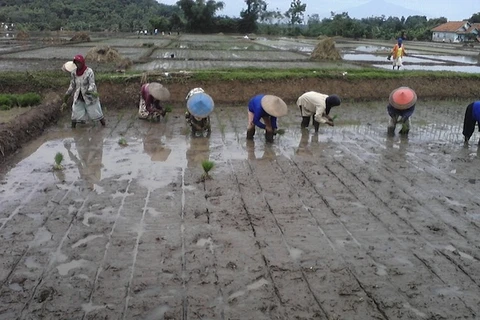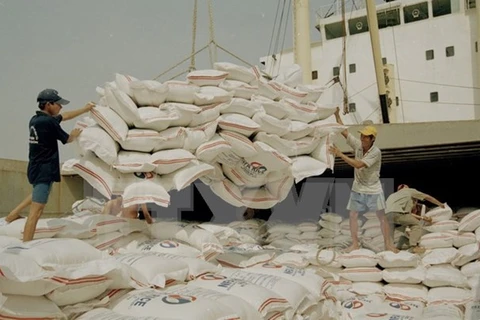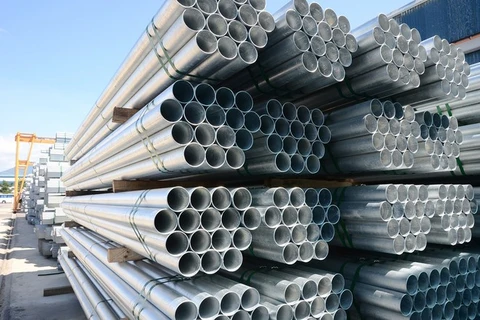 A local resident with buckets walking to fetch water from an artificial groundwater reservoir in the middle of a dry rice field at Rawa Bogo village, Bogor district of West Java in Indonesia. (Photo:XINHUA)
A local resident with buckets walking to fetch water from an artificial groundwater reservoir in the middle of a dry rice field at Rawa Bogo village, Bogor district of West Java in Indonesia. (Photo:XINHUA) Jakarta (VNA) – Food prices are expected to remain high for the rest of the year as the El Niño weather phenomenon affects production in Indonesia and other countries, the National Food Agency (Bapanas) has said.
Bapanas head Arief Prasetyo Adi said the Indonesian government will continue its efforts to control food prices, including by securing further imports of three particularly challenged commodities namely rice, corn and sugar.
He noted that the government had assigned the State Logistics Agency (Bulog) to import 3.5 million tonnes of rice this year to increase the government’s stocks and agreed to waive import tax up to 450 IDR (0.029 USD) per kg for this amount of rice.
He went on to say that other efforts to boost production are also underway, including plans to accelerate rice planting and improve fertiliser supply.
According to Statistics Indonesia (BPS), Indonesia's rice production is expected to decrease by 650,000 tonnes this year to 30.9 million tonnes. BPS data in early November also showed that rice was the main cause of high inflation in October which was up to 2.56% from 2.28% in the previous month.
To stabilise corn prices, the Indonesian Government will import 500,000 tonnes, Arief said, adding that half of this amount is expected to be shipped home before the end of this year.
Arief said that without intervention in domestic supply, prices of other food items, such as eggs and chicken, will also increase due to high demand amid declining output.
Besides expanding the sugarcane growing area, Bapanas will also continue to encourage companies to import sugar from Thailand, Australia, and Brazil. Previously, Indonesian companies temporarily stopped importing this product due to rising international prices and falling exchange rates, he added./.























